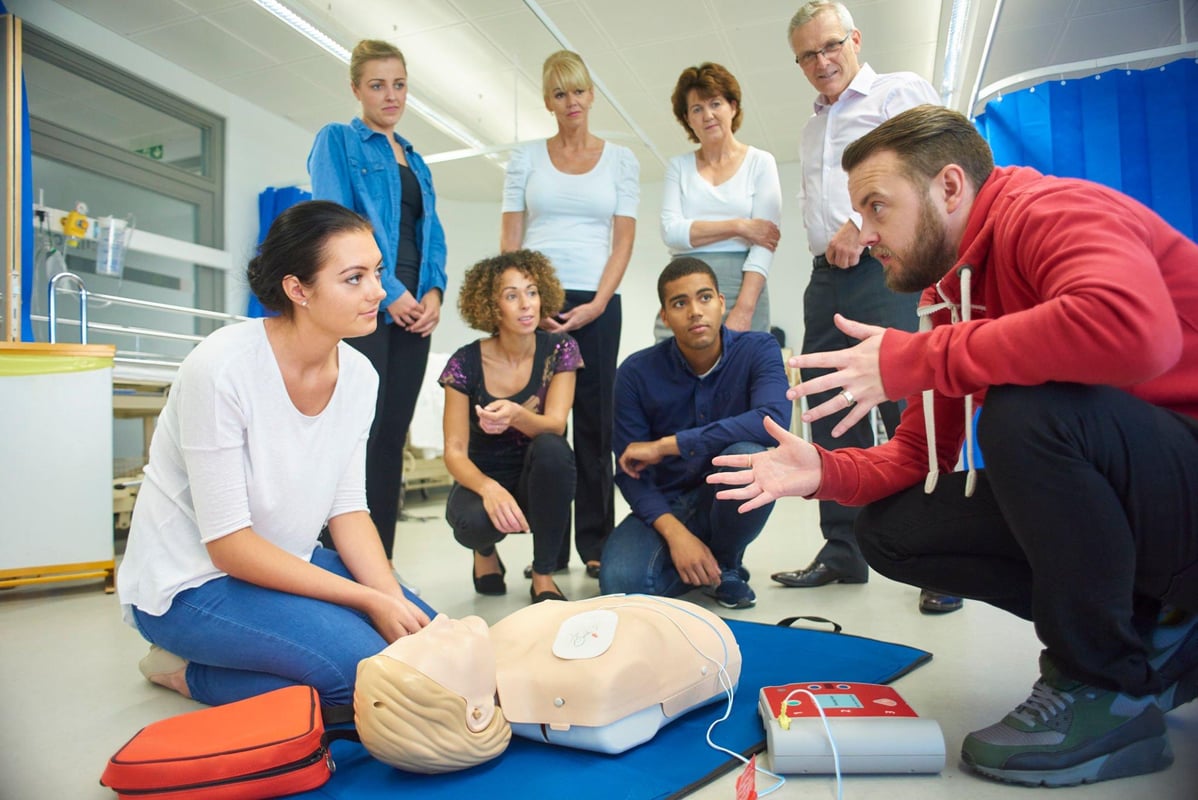
Financial aid (may be available)

$173 to start
$2,200 total
No cost info
No cost info
$1,300 total
$125 total
$85 total
No cost info
No cost info
No cost info
$36.50 total
No cost info
In the bustling heart of Alabama, Birmingham stands as a city that boasts of rich history, vibrant culture, and a plethora of opportunities in healthcare. If you're considering a career in this field, taking a first aid course can be an excellent starting point. But with so many options available, how do you find the right course for you? This post aims to assist you in navigating your way to the ideal first aid class in Birmingham, using resources from Dreambound, the largest platform for students to find vocational training programs.

First Aid, at its core, is the immediate assistance provided to a person suffering a sudden illness or injury. It serves as an essential bridge of medical care during an emergency, before professional help arrives. Learning First Aid equips you with the skills to potentially save a life or prevent a situation from worsening.
Before enrolling in a First Aid class, there are few prerequisites to be aware of. Though these may vary based on the institution, commonly required aspects include:
Age: Participants must be over 16 years of age.
Physical fitness: Given the hands-on nature of First Aid, physical fitness is often required.
Language proficiency: A good command of English, both written and spoken, is usually expected as the courses are typically conducted in English.
When choosing a First Aid class, several factors need to be considered:
Accreditation: Ensure that the course is recognized by reputable bodies, such as the American Heart Association or Red Cross.
Course content: Check if the curriculum covers all the essential topics.
Practical training: Hands-on training is crucial in First Aid learning.
First Aid classes are usually interactive, combining theory with practical sessions. You can expect to learn about:
CPR (Cardiopulmonary Resuscitation): This life-saving technique is a must in every First Aid course.
Handling emergency situations: You'll learn how to respond to various scenarios, like choking, burns, or injuries.
Using a defibrillator: Many courses now include training on how to use Automated External Defibrillators (AEDs).
After completing the training, you'll be assessed through a written test and a practical demonstration of your skills. Upon passing these, you'll receive a certification, which is typically valid for two years.
can provide further insight.
Once you're certified in First Aid, you can further your skills and knowledge with related courses, such as:
Advanced First Aid: This course provides in-depth knowledge about dealing with emergency situations.
Pediatric First Aid: This is ideal for those who work with children or want to specialize in pediatric care.
Mental Health First Aid: This course equips you with the skills to provide initial support to those experiencing mental health problems.
The importance of First Aid extends beyond professional use. It's a skill that can be useful in everyday life, helping you handle emergencies effectively – be it at home, workplace, or public spaces.
Every workplace should have trained First Aiders, as they can promptly respond to emergencies, reducing the risk of injuries and illnesses.
Certain groups, such as elderly people, children, or those with specific medical conditions, may require specialized First Aid. Understanding their unique needs can be beneficial in providing effective assistance.
With advancements in technology, First Aid training has evolved. Digital tools and virtual reality are increasingly being used to enhance learning experiences and simulate real-life scenarios.
Taking a First Aid class in Birmingham is not just a step towards a rewarding career, but also a potentially lifesaving skill you can carry with you every day. Choosing the right course can seem daunting, but with platforms like Dreambound, you can find the perfect fit. Whether you're pursuing a career in healthcare or simply want to be prepared for emergencies, First Aid training is an invaluable skill to have.
Consider Dreambound as a valuable resource if you're thinking about getting started in this field. We've written many guides to help with the different parts of the certification process across the country:
Thinking about all of the factors involved in making a career shift? Take a look at some of the guides we've written to help you in your journey.
Dreambound's platform allows prospective students to find the right educational program for them through searching, filtering, and connecting with our extensive selection of career & technical education partners.
Dreambound has over 70 programs across healthcare, technology, business, and industrial trades. This includes programs such as Medical Billing, Cybersecurity, and welding.
Some of our schools offer financial aid for those who qualify. Many others offer payment plans, where you can pay the cost of class over time.
Yes, Dreambound offers many online programs. On Dreambound's search, you can filter by online, in-person, and hybrid (part online, part in-person).
Dreambound is completely free for you to use! We are supported by schools and organizations who pay to advertise on our website, so we can offer all of our career resources for free.